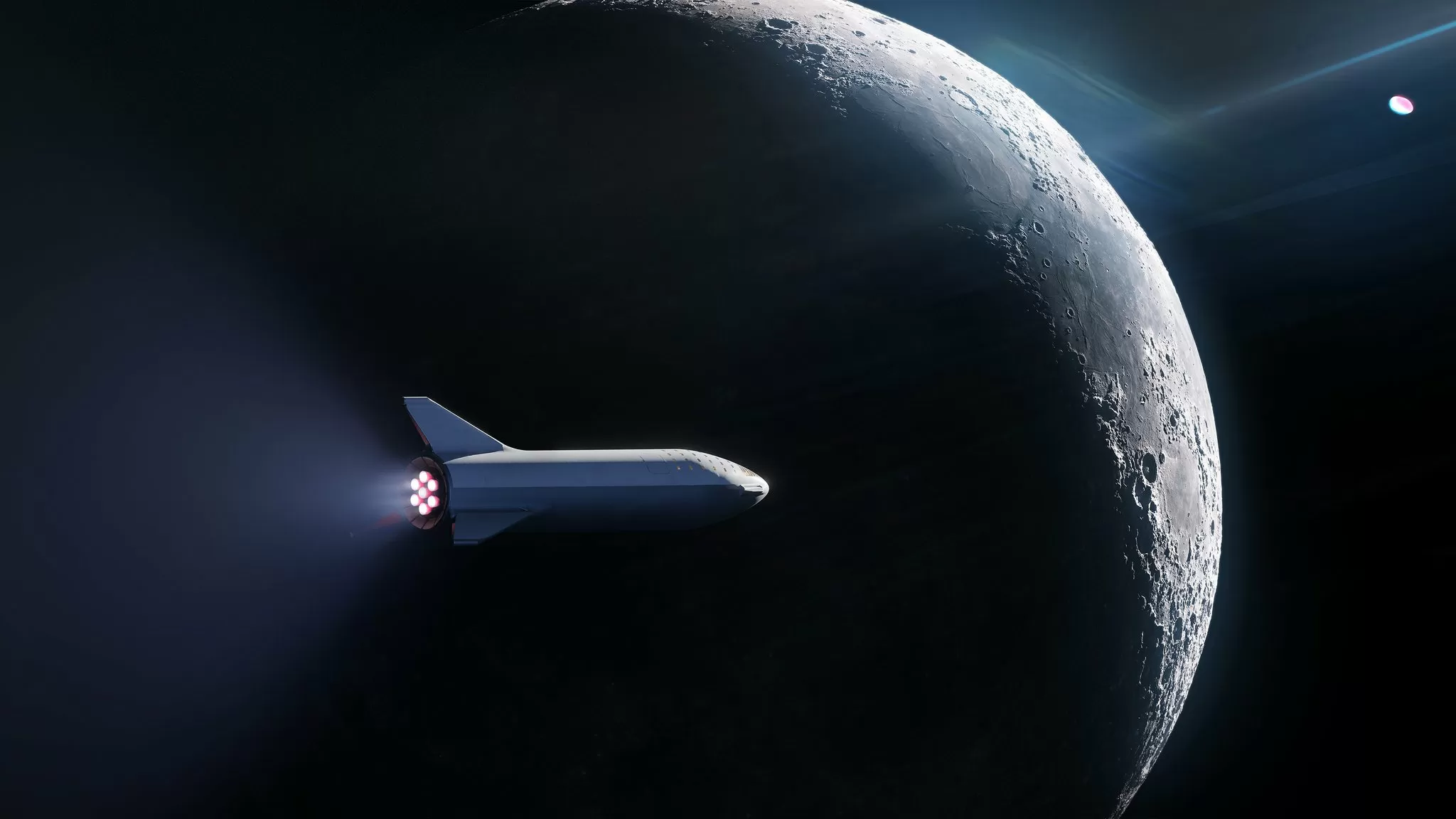Why it matters: One lucky passenger, presumably of Japanese descent, will board SpaceX's BFR launch vehicle for an unforgettable trip around the Moon. The journey will earn the lucky participant a place in the history books and provide one heck of a story to tell.

SpaceX recently announced it has signed the world’s first private passenger to fly around the Moon aboard its BFR (Big Falcon Rocket) launch vehicle. Details on who is flying – and why – will be revealed during a live webcast on September 17 at 6:00 p.m. Pacific.
SpaceX in announcing the news notes that only 24 humans have ever been to the Moon in history and that nobody has visited since the last Apollo mission in 1972. Technically, this mystery person won’t actually be going to the Moon but rather, flying around it. Either way, it’ll be an unforgettable and historic ride for the lucky passenger.
On Twitter, a user asked SpaceX CEO Elon Musk if he was the person in question. Musk responded with a Japanese flag emoji, suggesting the passenger is Japanese.
— Elon Musk (@elonmusk) September 14, 2018
SpaceX’s tweet also included a render for a new version of the BFR vehicle. By the early 2020s, SpaceX hopes the BFR will replace all of its existing rockets and spacecraft.
Musk announced in February 2017 that his company had enlisted two private citizens to fly on a trip around the Moon in 2018. Plans for that flight were eventually delayed; it’s unclear if one of the two passengers from that flight will be taking the trip on the BFR.
https://www.techspot.com/news/76441-spacex-has-recruited-first-private-passenger-trip-around.html